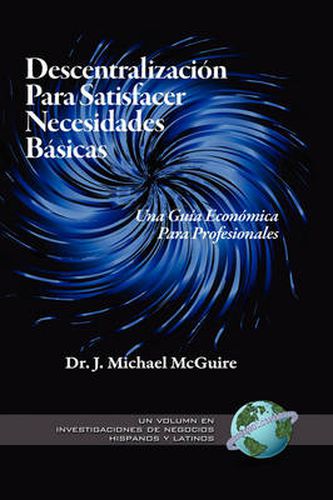Readings Newsletter
Become a Readings Member to make your shopping experience even easier.
Sign in or sign up for free!
You’re not far away from qualifying for FREE standard shipping within Australia
You’ve qualified for FREE standard shipping within Australia
The cart is loading…






This title is printed to order. This book may have been self-published. If so, we cannot guarantee the quality of the content. In the main most books will have gone through the editing process however some may not. We therefore suggest that you be aware of this before ordering this book. If in doubt check either the author or publisher’s details as we are unable to accept any returns unless they are faulty. Please contact us if you have any questions.
A volume in Research on Hispanic and Latino Business Series Editors Michael William Mulnix and Esther Elena Lopez-Mulnix Approximately 25% of Latin Americans live on less than $2 a day, and Latin America is the most unequal region of the world. Poverty and inequality cause suffering and slow development. The solution must include generating an inclusive development process through satisfying the basic needs of the poor that enhance their productivity, that enable them to contribute to the development process, and that enables them to earn the income necessary to live a full life. Decentralization of taxing and spending from the central government to lower levels of government can help to satisfy basic needs of the poor and create an inclusive development process. However, decentralization is a stepby- step process that must implemented by taking into account real-world circumstances such as a lack of administrative ability in local government, and by formulating policy accordingly. The book derives economic principles for implementing the process of decentralization, and it presents cases that illustrate the principles at work. It is an economic guide for policymakers and practitioners.
$9.00 standard shipping within Australia
FREE standard shipping within Australia for orders over $100.00
Express & International shipping calculated at checkout
This title is printed to order. This book may have been self-published. If so, we cannot guarantee the quality of the content. In the main most books will have gone through the editing process however some may not. We therefore suggest that you be aware of this before ordering this book. If in doubt check either the author or publisher’s details as we are unable to accept any returns unless they are faulty. Please contact us if you have any questions.
A volume in Research on Hispanic and Latino Business Series Editors Michael William Mulnix and Esther Elena Lopez-Mulnix Approximately 25% of Latin Americans live on less than $2 a day, and Latin America is the most unequal region of the world. Poverty and inequality cause suffering and slow development. The solution must include generating an inclusive development process through satisfying the basic needs of the poor that enhance their productivity, that enable them to contribute to the development process, and that enables them to earn the income necessary to live a full life. Decentralization of taxing and spending from the central government to lower levels of government can help to satisfy basic needs of the poor and create an inclusive development process. However, decentralization is a stepby- step process that must implemented by taking into account real-world circumstances such as a lack of administrative ability in local government, and by formulating policy accordingly. The book derives economic principles for implementing the process of decentralization, and it presents cases that illustrate the principles at work. It is an economic guide for policymakers and practitioners.